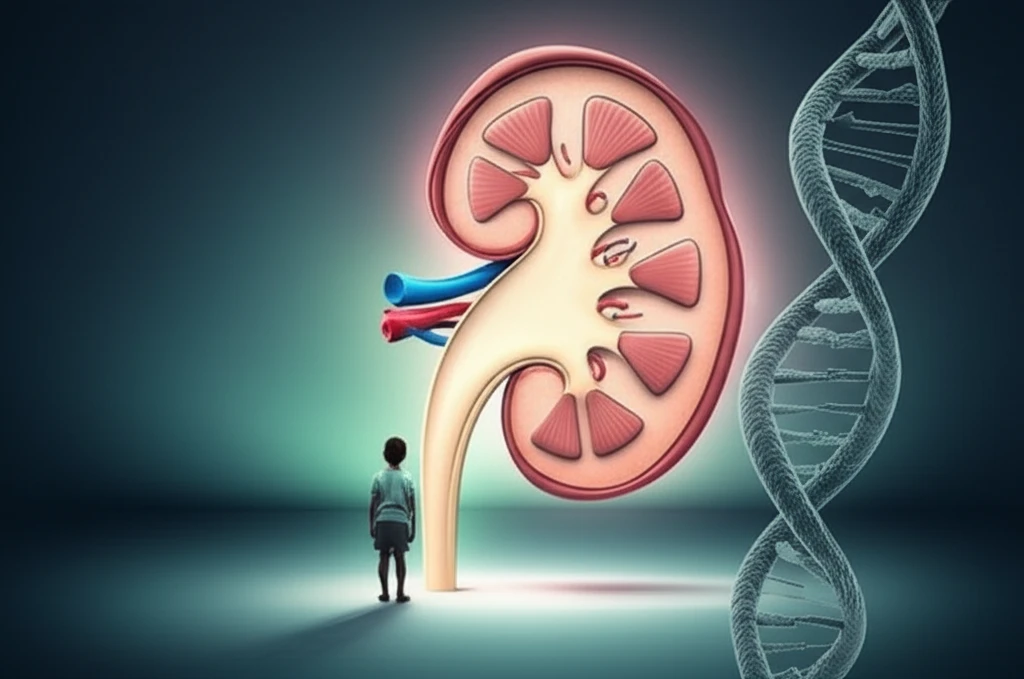
Decoding Kidney Disease: Can Genes Predict Treatment Success?
"New research explores how specific genes influence treatment response in children with nephrotic syndrome, offering hope for personalized medicine."
Nephrotic syndrome (NS) is a common kidney disorder in children, where the kidneys leak protein into the urine. While most children initially respond well to steroid treatment, many experience relapses or become resistant to steroids altogether. This can lead to long-term kidney damage and the need for more aggressive treatments. The big question is: why do some children respond to standard treatment while others don't?
Researchers have been exploring the role of genetics in predicting treatment outcomes for NS. One area of focus is the MDR1 gene, which is involved in how the body processes and eliminates certain drugs, including steroids. Variations in this gene, called polymorphisms, could affect how well steroids work in treating NS.
A recent study investigated the link between MDR1 gene polymorphisms and treatment response in Slovak children with NS. The goal was to see if specific genetic variations could predict whether a child would respond to prednisone, a common steroid medication used to treat NS. This article breaks down the study's findings and what they might mean for the future of personalized medicine in treating childhood kidney disease.
How do Genes Impact Steroid Treatment in Kidney Disease?

The study, published in Medical Science Monitor, analyzed the MDR1 gene in 46 children with NS and 100 healthy children. The researchers looked at three specific polymorphisms (1236T>C, 2677T>G, and 3435T>C) and how they related to treatment response, demographic factors, and pathological characteristics.
- 3435TC Genotype: Children with the 3435TC genotype had a significantly higher chance of responding to prednisone treatment.
- MDR1 1236CC and 2677GG: Children under 6 with NS had lower frequencies of MDR1 1236CC and 2677GG genotypes.
- Histology Matters: Children with minimal change disease (MCD) responded better to initial treatment compared to those with focal segmental glomerulosclerosis (FSGS).
Personalized Medicine for Kidney Disease: What's Next?
This study is an important first step in understanding how genetics can play a role in treating childhood NS. However, the researchers emphasize that larger, multi-center studies are needed to confirm these findings and explore how they apply to different ethnic groups. It's also important to remember that this is just one piece of the puzzle.
While genetic testing isn't yet a standard part of NS treatment, this research suggests that it could be in the future. By identifying children who are less likely to respond to steroids, doctors could explore alternative treatments earlier, potentially preventing long-term kidney damage.
Ultimately, the goal is to move towards a more personalized approach to treating NS, where treatment decisions are tailored to each child's individual characteristics, including their genetic makeup, age, and the specific type of kidney disease they have.
